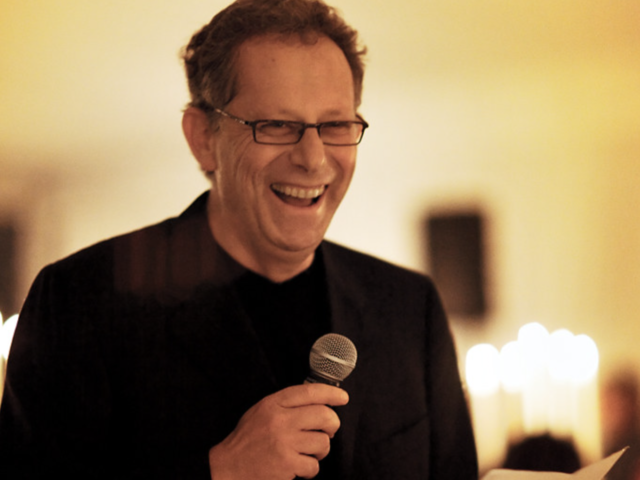My best friend died this week.
His name was Theo Schkolne, and he was 70 years old, so he lived a full measure of life, threescore-and-ten.
He had been ill for a while, and I had spent time with him during his battle, so the news was not jarring. But I can find nothing more important to write about, even in a week when they charged a former president with a federal crime for the first time. And there’s a lesson from his life you may find useful.
Namely: think with your heart.
What that means is that when you encounter a political debate, you have to look beyond the slogans and the talking points, and try to understand the people on both sides of the argument with equal empathy.
Not every point of view is equally valid, and some ideas are evil. Truth is not a relative concept, and sometimes you have to fight — physically, if necessary. But you should see opponents as human beings.
Theo was born in the rural town of Wellington, near Cape Town, South Africa. He came from 13 generations of rabbis; his family fled persecution in Europe and found refuge that small town, but he still faced antisemitism growing up.
He went to medical school and then became a psychologist, studying in Pittsburgh, Pennsylvania, before returning to South Africa. He specialized in treating people who had survived intense physical trauma.
Because he saw the world through the lens of recovery, Theo understood that many of the people motivated to take part in political debates did so because they were traumatized, or at least wounded, by past experiences.
It makes sense: so much political rhetoric is about casting the other side as an extreme threat and doing whatever is necessary to stop it. Some politicians use fear as a tool, cynically, but many are also sincerely haunted by fear.
Theo judged politicians and activists by their sensitivity — their ability to listen to others, and their ability to wrestle with their own flaws.
Too many people, he lamented, walked through life in a state of unconsciousness, insensitive to others and unable to reflect on themselves. By acting out their own woundedness, they simply continued wounding other people, making it more difficult for society to move forward or even to function.
“These people should all be in therapy,” he would observe — sometimes adding his favorite insult: “Get a life — get an internal, intellectual life.” He lamented the way politics blinded people to the complexity of each other’s lives.
And yet he believed in engaging in political debate: he risked his career and reputation to speak out against the demonization of Israel by left-wing ideologues who were also running South Africa into the ground.
He also wanted to “zap” the party apparatchiks and kleptocrats who were turning the new South Africa — which he embraced — into a failed state. His own neighborhood, he noted, had been spared the devastating power cuts that hit other parts of the city, which he suspected was due to corruption rather than to superior management.
Theo lived alone, on a hill, in a house with sweeping views of Table Bay. He loved the beauty of Cape Town and savored the audacity and spontaneity of its people. Yet he suffered from everyday anxieties, some of which were peculiar to South Africa’s violent society.
He was once held hostage in his home by a lunatic, for example, who would have murdered him had Theo not talked his way into an escape.
For all that, he challenged himself to explore new people, and experiences. “We’re always on the cusp of regression and renewal,” he would often say.
I often think of that phrase when I struggle with my own dilemmas. Each of us faces everyday choices. The Bible describes these as choices between good and evil; Theo called them directions of motion. We can choose to move forward, or backward.
He struggled with his own choices; he would have published more of his writing, for example, but was so meticulous about writing authentically. His best work was private, for his patients.
A final word, about the nature of friendship.
Theo and I hung out several times a week for about six years, until I met my future wife, and I began putting most of my energy into that relationship. He understood that, and he let go.
A true friend is someone who cares about you enough to help you flourish, even at a risk to themselves.
That kind of friendship seems rare nowadays. Perhaps it is time we thought about how to cultivate it again.
Joel B. Pollak is Senior Editor-at-Large at Breitbart News and the host of Breitbart News Sunday on Sirius XM Patriot on Sunday evenings from 7 p.m. to 10 p.m. ET (4 p.m. to 7 p.m. PT). He is the author of the new biography, Rhoda: ‘Comrade Kadalie, You Are Out of Order’. He is also the author of the recent e-book, Neither Free nor Fair: The 2020 U.S. Presidential Election. He is a winner of the 2018 Robert Novak Journalism Alumni Fellowship. Follow him on Twitter at @joelpollak.

COMMENTS
Please let us know if you're having issues with commenting.